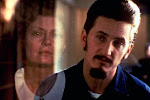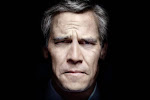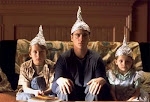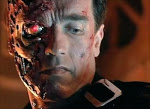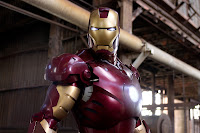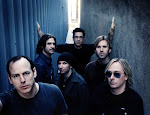 " For when Gentiles, who do not have the law, by nature do what the law requires, they are a law to themselves, even though they do not have the law. They show that the work of the law is written on their hearts, while their conscience also bears witness, and their conflicting thoughts accuse or even excuse them. " -- Romans 2:14-15 (ESV)
" For when Gentiles, who do not have the law, by nature do what the law requires, they are a law to themselves, even though they do not have the law. They show that the work of the law is written on their hearts, while their conscience also bears witness, and their conflicting thoughts accuse or even excuse them. " -- Romans 2:14-15 (ESV)
(warning: plot spoilers)
Patrick Kenzie (Casey Affleck) and his girlfriend, Angie Gennaro (Michelle Monaghan) are private investigators who have worked for collections agencies until a little girl goes missing from the neighborhood and a relative hires them to go looking for her. Kenzie in particular is underestimated by everyone he runs into, either for his lack of experience with missing persons or for his youthful appearance, however he presses onward in any case. He is competent and he knows the neighborhood, but one thing in particular sets him apart from everyone around him: a functioning conscience.
At one point, Kenzie and two police detectives track down a known child molester whom they suspect took the little girl. As they approach his house, a shootout ensues and one of the police detectives is fatally wounded. Kenzie then breaks into the house and finds the child molester in the house, cowering in a corner. This is moments after he discovers the body of another child, whom this man obviously killed. Kenzie hesitates for a moment, then shoots the man in the back of the head. Later on, one of the police detectives, Remy Bressant (Ed Harris) praises Kenzie for "doing the right thing," but Kenzie isn't so sure that murdering this man was the right thing to do. Bressant then gives a passionate discourse about his disdain for everyone who might resist his crusade against kidnappers, but Kenzie points out that murder is murder, no matter who it is, no matter what the circumstances.
One might think, from Bressant's impassioned speech, that his heart is in the right place, that he really is a crusader for The Right. But it turns out that Bressant came up with the idea to kidnap the little girl in the first place. Even the local police captain, Jack Doyle (Morgan Freeman), is involved. Granted, Doyle had planned on raising the girl in a better home than she would have had with her natural mother, but the fact still remains that he stole someone else's daughter. Kenzie gets the chance to walk away from the whole situation and let Doyle raise the girl in a much better environment than the girl would have had with her natural mother, but he chooses to turn in the captain. Kenzie had to make this decision alone, even against the wishes of his girlfriend/coworker. His decision does not win him any popularity contests (his girlfriend ends up leaving him because of it), but the little girl's mother seems to be changed by the whole ordeal to the point that she will raise her daughter with much greater care (of course the movie ends here, so it's unclear what the girl's future will actually look like).
People might argue that bending the rules is necessary for the greater good or for progress, however this is the opposite of progress from God's point of view. God's Way, which is moral perfection, is infinitely superior to the morality of natural men, which is to compromise however they, in their limited perspectives, see fit. God's Way is obviously more difficult than man's way. In fact, God's Way impossible for any person left to themselves, therefore faith is required. Obeying God in every aspect of life requires an abiding trust in His ability to work things out for the greater good. This makes sense as God is best equipped to know what the greater good is. Kenzie understood in his conscience that he should first do what is right in the little things, then "the greater good" will fall into line.
During Casey Affleck's brief narration the beginning of Gone Baby Gone he says,
" When I was young, I asked my priest how you could get to heaven and still protect yourself from all the evil in the world. He told me what God said to His children. 'You are sheep among wolves. Be wise as serpents, yet innocent as doves.' " (the last part is quoted Matthew 10:16, Jesus' words to his disciples)
Gone Baby Gone
John McClain and Charlie Wilson

The directors of Die Hard and Charlie Wilson's War make a point of showing the imperfections of their leading men. Both Wilson and McClain feel inadequate for the difficult job ahead of them, but they do their best with all the resources and skills available to them. Both McClain and Wilson struggle, they both want to give up, but they both end up succeeding.
John McClain and Charlie Wilson demonstrate true heroism by sacrificing their own priorities for the good of other people. They weren't extraordinary men except for one thing: They both had the chance to make a difference and they took it.
McClain and Wilson exemplify practical courage by taking action for other people's sake despite the inconvenience and pain they had to endure as a result. This is real heroism. It's not physical or intellectual power, but the willingness to sacrifice oneself that makes a hero.
Die Hard and Charlie Wilson's War also demonstrate a genuine quality of manliness. John McClain doesn't want to be stuck in a skyscraper with a dozen well-trained terrorists, but he deals with it anyway. He doesn't enjoy pain and he doesn't want to die, but he faces death and pain anyway for sake of those hostages. McClain is supposed to play the American cowboy-type to some extent, but overall he manages to avoid excessive pomposity. He jokes around, for example, because he might otherwise have a nervous breakdown. We might compare the unassuming, original John McClain to the more pretentious versions that appear in the next three installments (sellout versions) of Die Hard.
The most impressive accomplishment that Charlie Wilson credited to himself was getting re-elected five (or six?) times. He seemed to be good for little more than partying, boozing and womanizing. But he was well-liked. And he happened to sit on the crux of all the U.S. agencies that might help the Afghans fight off the invading forces of Soviet Russia. The magnitude of the suffering and injustice that the Soviets were inflicting on the Afghan people inspired him to realign his priorities and take action. He ended up working night and day for a cause that few people could appreciate to make a difference in millions of lives and, ultimately, help turn the tide of the Cold War.
The Oracle Explains Faith
 Ben Stein's new movie, Expelled: No Intelligence Allowed, has inspired my last few posts to address faith in a Creator vs. faith in science (atheistic science in particular). An oft-repeated demand from skeptical scientists has been "Show me God!" or "Give me measurable evidence for a Creator!"
Ben Stein's new movie, Expelled: No Intelligence Allowed, has inspired my last few posts to address faith in a Creator vs. faith in science (atheistic science in particular). An oft-repeated demand from skeptical scientists has been "Show me God!" or "Give me measurable evidence for a Creator!"
The Oracle is a character from The Matrix. Neo approaches the Oracle wanting to know if the rumors are true... is he the One? The Oracle says to Neo,
System of a Down -- "Science"
 System of a Down is one of the most musically innovative, all-around talented bands I have ever heard. They recently broke up (went on an indefinite hiatus) after ten years of playing together.
System of a Down is one of the most musically innovative, all-around talented bands I have ever heard. They recently broke up (went on an indefinite hiatus) after ten years of playing together.
System of a Down has written songs in protest to pretty much every authority, whether governmental, religious or intellectual. Their name implies (correct me if I'm wrong) a general rebelling agains "the system."
I should make it clear that System of a Down is thoroughly antagonist toward everything Jesus Christ represents. Like most people, they would rather worship themselves than God. It just so happens that some of their lyrics hint at something spiritually productive. As a general rule, rebellion against "the system" can lead to the most useful outcome of all, which is a casting-off of this world's priorities in favor of God's priorities.
However System of a Down resembles the majority in that they have never moved past the young-and-rebellious stage. In this way many people want something better than life-as-they-know-it however, they won't surrender to Jesus Christ therefore they will never escape the futility of life apart from God.
That said, here are the lyrics to System of a Down's "Science" :
predicting the future of things we all know
Fighting off the diseased programming
of centuries, centuries, centuries, centuries
Science fails to recognise
the single most potent element of human existence
Letting the reigns go to the unfolding
is faith, faith, faith, faith
(chorus)
Science has failed our world
Science has failed our mother earth
Spirit moves through all things
Spirit moves through all things
Spirit moves through all things "
Right away, by their reference to "mother earth," it's obvious that System of a Down doesn't care to acknowledge God, who "is spirit" according to Jesus (John 4:24).
But their statement, that "science has failed our world," is still valid. The overall message of this song is, "People have a spiritual element that science, by itself, cannot address." Granted, there are many scientists who embrace the fact that "spirit moves through all things," however this song is referring specifically to that breed of science that denies spiritual realities.
"Science fails to recognize the single most potent element of human existence" ... This is a amazing statement! Consider that alongside, "Spirit moves through all things."
I am still amazed by the rudimentary chemistry I learned at Arizona State University. Every atom is a miracle, from the electrons that spin around its nucleus to the unique properties of different molecules, which split apart and re-align depending on the temperature or whatever other molecules they might collide with. Who knows how much more I would have learned about God's miraculous power if I had continued on into second year chemistry (I changed majors halfway through my engineering degree).
All that to say, science should be a stronghold of spirituality. Scientists are blessed with an abundance of opportunities to witness God's amazing creativity. Scientists, especially chemists, have to wonder, what holds everything together? Why are there different elements? Why do some elements attract and other do not? What are atoms made out of?
Few people acknowledge the integral role of faith in our daily lives. We have faith that our cars' wheels will stay attached to our car as we speed down the freeway at 70 mph. We have faith that money is worth something so we keep going to work to accumulate more of it. We have faith that our friends will stay faithful to us even when times get tough. These small steps of faith should lead us toward having faith in God, who created all things, who continues to hold all things together.
3
comments
![]()
![]() Tags:
System of a Down
Tags:
System of a Down
Ben Stein's Expelled -- Science Ain't Expained Nothin'

Ben Stein is obviously well-informed. He has even earned the respect of the intellectual community (up until this movie came out).
Stein also demonstrates childlike wisdom, which is equally good if not better than typical "grown-up" wisdom. It's his childlike wisdom that's going to get him in trouble.
Children can't help asking "Why?" because they are genuinely interested.
Picture a child interrupting a scientist to ask, "Why is the sky blue?"
The scientist might answer, "That's the way the light reflects off of the atmosphere."
"Why?"
"That's the nature of light."
"Why?"
"Because that's the way light evolved... oh wait, wrong explanation! Just get away from me kid, I'm working here."
Science left to itself does not explain anything. Science can only observe and then report on those observations.
Scientific observation is supposed to be totally impartial, but this is impossible. As was pointed out in Expelled, secular scientists can't help imposing their secular worldviews on their observations. But let's not be too hard on those poor scientists... they're only human after all. We all filter our daily experiences and observations through our uniquely developed worldviews. It just so happens that many atheistic Darwinists are in denial of this fact.
Expelled depicts scientists saying, "The ingredients of life are carbon, protein and water." Okay... nice observation.
Here's a personal favorite: "Gravity is the power of attraction that occurs between two masses." Again, this is only an observation. Suppose I asked a secular scientist, "why does gravity have this power of attraction?" The secular scientist might answer, "I just told you, it occurs between two masses," but that does not answer my question. The question is: Why does this invisible energy called "gravity" exist? For what purpose? Who or what jump started this universal attribute shared by everything that has mass?
If evolutionary theorists want to keep their jobs, they have to be selective about when and where they are truly scientific. Atheistic Darwinists know that they'll get into trouble if they think too much about the ultimate origin of all things.
If no human can ever learn one millionth of a percent about anything, then rest assured that the First Cause of all things must be even more incomprehensible to our limited intellects. We cannot measure this First Cause; we cannot confine Him to our mortal brainpower. We cannot reduce Him to any theory or math equation.
Faith in God is not intellectually limiting... it is liberating in every way. Acknowledging God's greatness is the smartest thing that anyone could ever do while, for an atheistic Darwinist, this would be the scariest thing in the world.
Ironically, secular science becomes religious whenever it can't explain "why things are the way they are." Indeed, we might call any institution "religious" that tries to squeeze reality into that box called "human intellectuality." We might call any explanation "religious" that interprets reality as it would be convenient for a certain group of people.
One of the most legitimizing aspects of faith is that it lifts up God, not man. A man of faith believes in and trusts God, but this can be inconvenient in many ways. Faith makes sense on an eternal level, but that doesn't necessarily make this life any easier. Secular science, on the other hand, is driven by an admiration for human intellectuality. Mainstream science lifts up the individuals who make discoveries, however these discoveries should inspire us to praise God for His amazing creativity.
Faith in God is superior both practically and intellectually. Practically, having faith in God is the best way to deal with circumstances that we cannot control. Intellectually, faith is the healthiest way to embrace life's mysteries.
If you disagree with what I have written here and you would like to respond, then great.
I would love to hear from you as long as you:
First: Take a deep breath.
Second: Try to express some kind of original and/or enlightening insight (something more than "you're wrong and i'm right").
Any takers? Please speak up.
Expelled -- No Intelligence Allowed
 Ben Stein exposes the forces that dominate American academia in his new movie Expelled: No Intelligence Allowed.
Ben Stein exposes the forces that dominate American academia in his new movie Expelled: No Intelligence Allowed.
His thesis: Proponents and opponents of intelligent design are separated not by scientific discovery but by their faith-based worldviews. In particular, adherents of the Darwinian faith impose their beliefs on the rest of the scientific community by "expelling" anyone who even hints at intelligent design.
I appreciate the fact that Stein's concern is for the well-being of America in general. It would be disastrous if Darwinian morality came to dominate our government.
Darwinism erects walls between those who believe correctly and those who believe incorrectly. This resembles the efforts of the Nazi party, who used walls to separate themselves from anyone they deemed unacceptable or (in honor of their Darwinian roots) insufficiently evolved. This helped them weed out the weak and imperfect (or anyone who didn't support their cause). The holocaust was Hitler's proud attempt at speeding along the evolutionary process.
There is obvious conflict between mainstream science and the faith-based community. Stein points out that this is very much like a war. Richard Dawkins, who makes several appearances throughout the movie, describes his book The God Delusion, as a "frontal assault against religion."
Expelled reminds me of how fond people are of labeling anyone who believes differently from themselves. Expelled demonstrates how Darwinists use labels to stave off anyone who dares to mention intelligent design. Like lawyers who seek to discredit unfavorable witnesses, Darwinists utilize labels to stifle anyone who even even hints that intelligent design might serve as an alternate theory for "the way things are."
At one point Richard Dawkins suggests that it might have been aliens who injected the earth with its first forms of life. Another leading expert in evolutionary guesswork states that maybe proteins piggy-backed on growing crystals, which then stretched and twisted those proteins into living cells. Testimonials such as these make it obvious that the leading spokesmen of Darwinism understand a lot about the complexity of life, however they will do anything to avoid arriving at God (Yahweh) as an explanation for life.
The overarching issue here is intentional disbelief. Darwinism is nothing more than a convenient distraction for those who want to run away from God. People always have and always will clench their fists around anything that helps them deny Him. The inability to see God in creation is not a random phenomenon... it is a conscious choice.
Stein makes a point of singling out religion as a central causes of conflict in the debate between intelligent design and Darwinism. Indeed, it is old news that men have used religion as an excuse to rape and pillage. However, as one of Stein's interviewees very astutely points out, religion is only a red herring. It is a convenient distraction for anyone who wants to write off faith in God.
Another of Stein's interviewees points out the much neglected value of self-criticism. Sold-out followers of Darwinism are quick to snuff out every last hint of creationism. The infrastructure of modern science is designed to ostracize anyone who mentions God in their scientific publications or in their lecture halls.
Thanks to Ben Stein's Expelled: No Intelligence Allowed, I realized that it is OK and even healthy to assume the universe is intelligently designed. If we value intelligence as much as we claim, this should affect our worldview accordingly. If intelligence is our means to discovery, it makes sens that intelligence should also be our our beginning and ultimate end.
***
If you disagree with what I have written here and you would like to respond, then great.
I would love to hear from you as long as you:
First: Take a deep breath.
Second: Try to express some kind of original and/or enlightening insight (something more than "you're wrong and i'm right").
Anyone takers? Please speak up.
Kingdom of Heaven -- Balian's Journey
 Kingdom of Heaven, directed by Ridley Scott, stars Orlando Bloom as Balian de Ibelin and Liam Neeson as Godfrey de Ibelin.
Kingdom of Heaven, directed by Ridley Scott, stars Orlando Bloom as Balian de Ibelin and Liam Neeson as Godfrey de Ibelin.
Balian's experiences mirror those of any Christ-follower. Look at the first four chapter titles for starters:
1. Crossroads
2. The Baron's Son
3. In Hell
4. To Erase My Sins
1. Crossroads. Balian's wife commits suicide after their first child dies in childbirth. This devastates Balian's world to the point that he has more reason to leave his home town than stick around to salvage what he can of his old life. This is similar to real life in that people will refuse to surrender to God's grace unless some devastating circumstance in their life drives them to do so.
2. The Baron's Son. Balian's finds out from Godfrey that he is an illegitimate son. His local priest also informs him that the town does not want him around anymore. He is overwhelmed with discouragement, regret and resentment. At this point Balian resembles the prodigal son that Jesus describes in Luke 15.
3. In Hell. The fires that blaze out of Balian's smithy represent the hell he is experiencing. He is at the end of his rope. Every option except for seeking out his father leads to hell.
4. To Erase My Sins. The hell of his current circumstances, both inward and outward, drive him to seek reconciliation in Jerusalem. Of course, he could have found God anywhere, but this is the best thing he knows to do. So also, in real life, God encounters each person differently. He provides each one of us with some avenue for seeking Him out.
From this point onward the quality of Balian's life resembles that of an obedient Christ-follower. In the way that Balian changes the world around him by living out his father's basic instructions so also Christ-followers change the world around them by obeying Jesus in a few basic ways.
Godfrey teaches Balian two thing about fighting: Maintain a high guard and use the whole sword. Within minutes Balian is practicing these two things in a life-or-death battle. This resembles Jesus' style of teaching, as He gave His disciples a few basic principles and then immediately sends them out into the world to practice.
Godfrey also charges Balian with a few moral guidelines: Serve the king, protect the people, fight courageously and tell the truth. Balian ends up saving an entire city by doing these things. Christ-followers have a similarly simple calling: Follow after and obey Jesus all the time no matter what. If we do this simple thing, then, like Balian, we will bear much fruit.
Kingdom of Heaven -- "It is Proper to Praise Him"
 Kingdom of Heaven, directed by Ridley Scott, stars Orlando Bloom as Balian de Ibelin and Liam Neeson as Godfrey de Ibelin.
Kingdom of Heaven, directed by Ridley Scott, stars Orlando Bloom as Balian de Ibelin and Liam Neeson as Godfrey de Ibelin.
Soon after arriving in Jerusalem, Balian sees Muslims praying openly, which seems a little odd since at that point Jerusalem was controlled by Christian forces. He askes his friend, "They are allowed their prayers?" His friend answers, "Yes, if they pay the tax." Balians friend translates what the Saracens are saying, "Praise be to God," and adds his own two cents, "It is proper to praise Him."
There are few people in the world who understand the weight of that simple statement: "It is proper to praise Him."
Why is it proper to praise God?
Answer: He is above all things most praiseworthy. God is God, therefore it makes sense to worship and praise Him.
He is by nature the best, the point of reference for all that is good, pure or perfect.
God is. Everything else is because God says so.
The statement, "It is proper to praise Him," will continue to be true forever.
Super Size Me
 Morgan Spurlock is an admirable man. He does what he loves for a living with the intention of affecting the world for good. His best known work (so far) is Super Size Me.
Morgan Spurlock is an admirable man. He does what he loves for a living with the intention of affecting the world for good. His best known work (so far) is Super Size Me.
By eating nothing but McDonald's for thirty days Spurlock accomplishes much more than showing that fast food is unhealthy (most people already know that anyway). Using a few Big Macs and a camera he manages to shake the foundations of a multi-billion-dollar industry and convict millions of people about their careless eating habits. He conducts this experiment with McDonald's since it's the biggest player in the fast food industry.
The rules: And must eat three meals per day at McDonald's for thirty days. If anyone asks him "Do you want to super-size that?" he must say yes. He must try everything on the menu at least once.
Super Size Me is powerful because Spurlock uses himself as a guinea pig. He literally puts his life on the line by consuming nothing but McDonald's for thirty days straight, three meals a day. His doctors warn him repeatedly that he might destroy his kidney or make himself diabetic if he continues this diet for the full thirty days, but he finishes his experiment anyway (the show must go on!).
Spurlock inspires people to think more about what they eat, including where their food comes from. He goes over the big picture, even beyond the fast food industry, into the corporate mentality of America in general.
He also raises the question, Who is responsible? Corporations or people? Most people know that fast food is unhealthy. Obviously corporations know this better than anyone. Is it a matter of eating less, or choosing to eat better?
Toward the end of Super Size Me Spurlock notices that he feels better while he is consuming McDonald's food but he feels terrible during all the time in between meals. It turns out that fast food is physically addictive, which is unfortunate in light of its dearth of nutritional benefits. Spurlock discovers that this is strategic... fast food companies engineer their food to be addictive.
This brings up an interesting point about food in general. We can become addicted to anything. Most Americans are addicted to food, for example. Our craving for food springs out of more than just a need to survive... a full belly gives us a brief sensation of security. All is well while so long as our stomachs are full. What other things are we Americans addicted to? I can think of a few things: fossil fuels, money, feeling secure, entertainment, social acceptance... Can you think of any others?
Spurlock's next major film is "Where in the World is Osama Bin Ladin." His goal, again, is to promote thinking. He addresses such questions as "What drives the war on terror?" "Is the war on terror a legitimate war at all?" and "How might such a war be tainted by political or religious interests?"
See what i mean? This guy is solid.
Morgan Spurlock Vs. Michael Moore

Morgan Spurlock and Michael Moore are both famous for making documentaries about social issues.
Moore's best known work includes Fahrenheit 9/11 (about the Bush Administration's exploitation of 9/11) and Sicko (about the medical industry).
Spurlock is best known for Super Size Me (he eats nothing but McDonalds for 30 days).
Judging by these documentaries, what can we tell about the personal character of these men? (We can tell a lot about the quality of a person's heart by the way they get things done.)
It would seem that Spurlock is driven by better motivations than Moore. Spurlock's goal is to address public well-being while Moore is little more than a sensationalist. Spurlock draws attention to the issue at hand while Moore draws attention to himself. Spurlock inspires people to think for themselves while Moore wants more people to think like him.
This matters because the genuine character of these men will affect their viewers. Spurlock has a healthier outlook on life, therefore his work promotes a similarly healthy outlook. Michael Moore's message is tainted by his own frustrations and bitterness, so he can't help but promote bitterness in the people that follow him.
The Christ-like Tyler Durden (Fight Club)
Tyler Durden is a Christ-figure to the men who follow Him. He is a makeshift savior or even God to the men who look to him for guidance and hope. At one point, Jack even says, “In Tyler we trusted.”
Tyler Durden is thoroughly misguided, so I hate to admit that his methods for living resemble Christ's. But it’s true nonetheless. Tyler exemplifies the freed quality of thinking that should characterize every Christ-follower.
Durden instills vision into his followers in much the same way that Christ instills His own followers with heavenly vision. While Christ-followers set their sights on otherworldly, eternal goals, members of Fight Club or Project Mayhem set their sights on Tyler Durden’s otherworldly imagination.
Everyone has a built in need to live for a purpose. Everyone wants something greater then themselves to live and to die for. Tyler’s insane charisma fills this hole for his followers.
Durden reminds his basement congregation that they have no great wars or depression that might unify them. He points out that their war is a spiritual war and their depression is their lives. Average listeners can’t help but say “Yes! Please lead us!” to Tyler’s basement speech.
In the next few minutes Tyler gets the opportunity to solidify his followers’ faith in him.
The owner of that particular basement is Lou. Lou descends his stairs with an armed henchman intending to break up these fight clubs forever. But neither Lou, nor the henchman, nor anyone else in the room (including Jack) can understand the unrelenting quality of Tyler’s dedication.
Tyler deliberately provokes Lou to the point that he is pounding Tyler’s face in a frustrated rage. Lou even gets into a rhythm as Durden continues to egg him on, laughing hysterically. Durden finally wins the contest not by physical force, buy by psychological outmaneuvering. He jumps up from the floor with his pulverized face and pins Lou underneath him. Tyler then splashes his own blood and saliva all over Lou as he continues to laugh, in between breaths begging Lou to let them stay. This convinces Lou to let them keep meeting in his basement.
An average man such as Lou would could not comprehend Tyler’s psychotic dedication. This goes to show how an average, sane person would be helpless against an insane person. In a fight between the sane and insane, the sane person’s sanity works against him. An average man’s sanity would inspire him to be reasonable while an insane man knows no such bounds.
Tyler is insanely sold-out for his cause to the point that no amount of pain and not even death, can dissuade him. Granted, his foundation for acting thus is based in his well-honed ability to dismiss reality, however this does not lessen the power of this gesture. In return for a pulverized face, Durden earns the unfading dedication of his awe-struck audience.
Tyler Durden’s psychosis allows him to capitalize on the unexpected genius of martyrdom. Anyone who is willing to die for their cause cannot lose. If a man who is willing to be martyred isn’t killed by his opponents, then great… he will continue advancing his cause while he's still alive. In the event that his opponents succeed in killing him, he will succeed even more in advancing his cause.
There is a kind of insanity that is beneficial for the gospel’s sake. I use the word “insanity” in a relative sense. People from the dark ages would call modern medicine insane simply because they wouldn’t know any better. What is and what isn’t insane all depends on people’s point of reference. As for spiritual matters, people can only be sane if their point of reference is Christ.
A person who has not been fundamentally altered by the Spirit of God would consider following after God an insane pursuit, especially when they are so in love with the futility of self-indulgence. Any person would have to be crazy by the world’s standards in order to follow after a God prefers to remain untouchable and invisible. But, again, it all depends on what or who is our point of reference.
A Christ-follower might consider average westerners crazy for putting all their confidence in numbers with dollar signs posted next to them. Even if I hold a twenty dollar bill in my hand, where is the value in it? It looks like paper to me. Why should I worry about trying to accumulate stacks of similarly-printed bills when I am already perfectly content without them?
Jesus Christ, in His time, stood alone as the only Man who kept His sights on God's holiness despite all the distractedness the sinful men who surrounded Him. Even despite all the threats and pain and mockery of the whole world pressing in on Him, He persevered even still. This made Jesus look crazy.
So who is more crazy, sons of this world, or the Son of God? Even if all the sons of this world rise up in opposition to the Son of God, is not the Son of God still far more trustworthy?
Therefore, let those of us who follow Christ embrace a heavenly quality of insanity. Let’s seek out the freedom of saturating ourselves with God's Spirit, however imprudent this may appear to the rest of the world.
Insane dedication to Christ is highest level of sanity in God's eyes. We needn’t dismiss reality, but rather, in Christ, we can finally embrace it. We needn’t try and cover up any truth about ourselves because God will cleanse us spiritually so we are clean in every way.
5
comments
![]()
![]() Tags:
Brad Pitt,
Edward Norton,
Fight Club
Tags:
Brad Pitt,
Edward Norton,
Fight Club
Stealth
 Starring Josh Lucas as Lt. Ben Gannon, Jessica Biel as Lt. Kara Wade, Jamie Foxx as Lt. Henry Purcell and Sam Shepard as Capt. George Cummings.
Starring Josh Lucas as Lt. Ben Gannon, Jessica Biel as Lt. Kara Wade, Jamie Foxx as Lt. Henry Purcell and Sam Shepard as Capt. George Cummings.
The Navy's most elite pilots are Lt. Ben Gannon, Lt. Kara Wade and Lt. Henry Purcell. They also fly the Navy's most advanced fighter jets, called Talons. A little while after these three have established themselves as an efficient killing machine, Captain Cummings adds an Unmanned Combat Air Vehicle (UCAV) named EDI (Extreme Deep Invador) to the team. EDI (pronounced "Eddie") is so advanced that he learn, adapts and reacts to different situations much like a human. After lightning strikes his circuits (go figure) he learns how to be rebellious. Soon after that Ben saves EDI, thereby teaching him camaraderie.
Stealth demonstrates the fact that war utilizes and destroys human life, yet it is inherently inhuman. Humans are used for making war only because they are still smarter and more versatile than any technology that has been invented thus far.
Stealth also reminds me of how successful the U.S. has been at streamlining and objectifying war. During the Revolutionary War, for example, the British tried to preserve their honor and "fight like men" by marching in straight lines toward their colonial adversaries. Americans, on the other hand, used more practical means of fighting, which involved a lot of moving around and shooting from behind whatever cover they could find.
All this to say, war is a terrible waste of human life. War may be inevitable as long as there is evil in the world, but it is a tragedy nonetheless.
We can remember, for encouragement's sake, that God has redeemed war in many ways. For one thing, He calls his people to wage war on a spiritual level. He equips us with His Spirit for the purpose of uprooting and destroying evil.
Every soul is battling to advance either good or evil. Even those who try to avoid one side or the other are unwittingly advancing the cause of darkness and death.
Paul admonished Timothy, saying "Suffer hardship with me, as a good soldier of Christ Jesus" (2 Timothy 2:3). About his own life he said, "I have fought the good fight, I have finished the course, I have kept the faith" (2 Timothy 4:6)
1 comments
![]()
![]() Tags:
Jamie Foxx,
Jessica Biel,
Josh Lucas,
Stealth
Tags:
Jamie Foxx,
Jessica Biel,
Josh Lucas,
Stealth
Southland Tales, Idiocracy and American Dreamz
Southland Tales, Idiocracy and American Dreamz demonstrate a similarly sarcastic insight into American Culture.
Any insight into the way things has roots in spiritual realities. True spirituality looks into who people really are and what is really going on. Southland Tales stars Dwayne Johnson as Boxer Santaros/Jericho Cane (a movie star utilized by the Republican party for political gain), Seann William Scott as Roland Taverner/Ronald Taverner (he was duplicated by the time portal), Sarah Michelle Gellar as Krysta Now (enterprising porn star), Mandy Moore as Madeline Frost Santaros (Boxer's wife) and Justin Timberlake as Private Pilot Abilene (narrator and Bible-reading sniper).
Southland Tales stars Dwayne Johnson as Boxer Santaros/Jericho Cane (a movie star utilized by the Republican party for political gain), Seann William Scott as Roland Taverner/Ronald Taverner (he was duplicated by the time portal), Sarah Michelle Gellar as Krysta Now (enterprising porn star), Mandy Moore as Madeline Frost Santaros (Boxer's wife) and Justin Timberlake as Private Pilot Abilene (narrator and Bible-reading sniper).
Southland Tales puts a different spin on Steven King's The Stand. The movie's writers make this obvious by changing King's statement, "This is how the world ends. This is how the world ends. Not with a bang, but with a whimper." to "This is how the world ends. This is how the world ends. Not with a whimper, but with a bang."
Southland Tales tells how the world ends by depicting an amplified version of the world as we know it today: people are more riotous and misguided than ever, the entertainment industry rules the public mind and the government has become so paranoid that it encroaches on people's basic freedoms. The movies scatter-brained plot is supposed to demonstrate the end product our present scatter-brainedness. Out of the three abovementioned movies, Idiocracy has the most redeeming qualities.
Out of the three abovementioned movies, Idiocracy has the most redeeming qualities.
Joe Bauer (Luke Wilson) takes part in a military experiment that's supposed to freeze him and then thaw him out after one year but the experiment is forgotten and he end up thawing out five hundred years later. As Joe stumbles about in this futuristic America he witness the colossal failure of evolutionary theory. Humanity has lost so much intelligence over the years that Joe is now the smartest man in the world.
The state of the U.S. in five hundred years results from a gradual dumbing down of society. This is partly because the greatest minds of each generation have dedicated themselves to superficial endeavors such as preventing hair loss and enhancing male erectile function. Five hundred years in the future entertainment has been whittled down to the basic things that people laugh at nowadays: farting and getting kicked in the junk. The president is a former wrestling champion. He brings his congressional meetings to order by firing a machine gun in the air. People have all but lost the ability to speak English as speaking properly has become so looked down upon. The corporation that produces an energy drink called "Brawndo" has so thoroughly monopolized the drink industry that it outlaws water.
Idiocracy demonstrates the end product of people taking corporate slogans at face value. People have been bred to accept the fact that "Brawndo is what the body craves because it has electrolytes." People deduce that every other living thing, even plants, must also crave Brawndo, so they try to water their crops with it. Of course the crops fail and but people are too stupefied by Brawndo's advertising to be albe to figure out why.
Idiocracy also makes a bold statement about being excessively fixated on sex. Five hundred years in the future, there is an "adult" version of everything, even Starbucks. Men have devolved to the point that they see women as nothing more than objects of their sexual fantasies. Men's sexual fixations are one of the leading contributors to this futuristic state of idiocracy. American Dreamz is the least constructive of the three aforementioned movies. It satirizes American Idol, the war in Iraq, terrorism and, above all, the Bush Administration. I mention this movie mainly because it resembles the other two.
American Dreamz is the least constructive of the three aforementioned movies. It satirizes American Idol, the war in Iraq, terrorism and, above all, the Bush Administration. I mention this movie mainly because it resembles the other two.
American Dreamz represents the convictions of many Ameicans who look at the general direction of the U.S. and suspect that something is amiss but can't imagine how to do anything about it. Whatever truth is expressed in this movie is tainted by an unmistakably bitter undertone. American Dreamz demonstrates the fact that satire is good for inspiring thought, however it often springs out of bitterness and therefore breeds more bitterness, which is counterproductive.
Sally Kendoo (Mandy Moore) is a aspiring performer as well as a manipulative back-stabber who will do anything to win top-spot on the TV show American Dreamz (American Idol). Martin Tweed (Hugh Grant) is American Dreamz' host (who happens to be British). President Staton (Dennis Quaid) is the recently re-elected President of the United States, who is struggling to understand his position as well as the world around him. The relationship between President Staton and his Chief of Staff (Willem Dafoe) is similar to a ventriloquist and his puppet (the president is the puppet). William Williams (Chris Klein) is Sally's gullible boyfriend who returns from Iraq with a gunshot wound only to blow himself because Sally dumps him. Omer (Sam Golzari) is a reticent terrorist who decides not to follow through with his mission to blow himself up and the President along with him.
Horton Hears a Who
 Based on the book by Dr. Seuss, starring (the voices of) Jim Carrey as Horton, Steve Carell as the Mayor of Whoville, Carol Burnett as the uptight Kangaroo, Will Arnett as Vlad (the vulcher) and Seth Rogen as Morton (the mouse).
Based on the book by Dr. Seuss, starring (the voices of) Jim Carrey as Horton, Steve Carell as the Mayor of Whoville, Carol Burnett as the uptight Kangaroo, Will Arnett as Vlad (the vulcher) and Seth Rogen as Morton (the mouse).
Horton Hears a Who is about perspective and faith.
Kangaroo is the chief skeptic of the jungle. Her favorite phrase: "If you can't see it, or hear it, or touch it, then it doesn't exist." She can't imagine any other world than the one she's familiar with and she doesn't want to imagine any world she can't manipulate for her own ends.
Horton can't see Whoville, but he knows what he heard. No one else can hear what Horton hears because their ears aren't as powerful as his.
It seems harmless enough to claim to have heard a microscopic person, but somehow this threatens Kangaroo's sense of control. She cannot tolerate anything that threatens her small-minded world. Indeed, she maintains control over her surroundings by advocating small-mindedness.
Eventually the Whos make enough noise to break through to the other animals, but it is Horton who fights the good fight for not compromising his convictions in the face of rejection, discouragement and even physical danger.
We have long since discovered that our world is a speck in comparison with the rest of the universe. Compared to us, the universe is infinitely huge. Scientists have to invent new numbers in their attempts to quantify the number of planets, stars and galaxies floating around out there. We are also discovering more about the painstaking details of God's creation. We have yet to comprehend the particles that make up the world around us or the forces that hold them all together.
As both Horton and the Mayor discover, there are signs all around us that hint at a higher Power. Those with eyes to see (or big elephant ears to hear) acknowledge this. Some signs are small, like whispers from a speck of dust. Others are as powerful earthquakes or as far reaching as night and day. It is often inconvenient to acknowledge these signs, but blessed are those who keep the faith despite opposition from the majority, which is made of skeptics and and their followers.
"Blessed are the pure in heart, for they shall see God." (Sermon on the Mount)
Even Fight Club has rules

Even Fight Club has rules.
There has to be organization or human interaction becomes pointless. There are social rules. There are moral rules. There are business rules.
Good rules are good.
This is why the Fight Club "no rules" mentality is self-defeating. All Project Mayhem's must eventually implode because mayhem cannot maintain itself. Mayhem needs order to exist like parasites needs a healthy, living creature to exist.
This relates to the fact that rebellion is not an end in itself. Rebellion against what? Rebellion to what end?
We need purpose. If we dare to wander in our minds from one little purpose to the next, like stones jutting out from shallow waters, we will eventually find that we exist for purpose that extends beyond this life into eternity.
Be thoughtful about what you rebel against. Don't trust every Tyler Durden that crosses your path. There's no point in throwing out everything resembling establishment unless we know of something better to take its place.
0
comments
![]()
![]() Tags:
Brad Pitt,
Edward Norton,
Fight Club
Tags:
Brad Pitt,
Edward Norton,
Fight Club
Disney's Enchanted and The Great Gadsby
 This version of The Great Gatsby (made in 1974, based on the book by F. Scott Fitzgerald) stars Robert Redford as Jay Gatsby, Mia Farrow as Daisy Buchanan and Sam Waterston as Nick Carraway (the narrator).
This version of The Great Gatsby (made in 1974, based on the book by F. Scott Fitzgerald) stars Robert Redford as Jay Gatsby, Mia Farrow as Daisy Buchanan and Sam Waterston as Nick Carraway (the narrator). Enchanted stars Julie Andrews (the Narrator), Amy Adams as Giselle (main character), Patrick Dempsey as Robert Philip (busy New York Lawyer), James Marsden as Prince Edward, and Susan Sarandon as Evil Queen Narissa.
Enchanted stars Julie Andrews (the Narrator), Amy Adams as Giselle (main character), Patrick Dempsey as Robert Philip (busy New York Lawyer), James Marsden as Prince Edward, and Susan Sarandon as Evil Queen Narissa.
The day after seeing Disney's Enchanted I watched the abovementioned movie version of The Great Gatsby. One of the main messages of Enchanted was "In real life, there are no happy endings." The Great Gatsby confirms this statement while, ironically, Enchanted disproves it.
Jay Gatsby as well as Daisy Buchanan could have used a healthy does of Enchanted's innocent outlook on love. Meanwhile, Giselle's relationship with Robert works out because she learns how to deal with reality better than if she had stayed in her storybook world.
There are redeeming qualities to life's difficulties. For example, Giselle learns that getting to know someone isn't easy; it takes time and effort. But the process of getting to know someone allows two people to grow together, which is inestimably valuable. Then again, Gatsby and Giselle might have embrace more of Giselle's quality of love, which is oblivious to its surroundings. If they had, they would have gotten married regardless of the fact that Gatsby was poor and Daisy was rich.
Thank You For Smoking
 Starring Aaron Eckhart as Nick Naylor (main character), Katie Holmes as Heather Holloway (reporter from Washington Post, J.K. Simmons as BR (nick's boss), Robert Duvall as "Captain," Rob Lowe as Jeff Megall (movie star agent), William H. Macy as Ortolan Finistirre (Senator from Vermont) and Sam Elliott as Lorne Lutch (the original Marlboro Man).
Starring Aaron Eckhart as Nick Naylor (main character), Katie Holmes as Heather Holloway (reporter from Washington Post, J.K. Simmons as BR (nick's boss), Robert Duvall as "Captain," Rob Lowe as Jeff Megall (movie star agent), William H. Macy as Ortolan Finistirre (Senator from Vermont) and Sam Elliott as Lorne Lutch (the original Marlboro Man).
Thank You for Smoking makes a powerful statement about truth... how truth is communicated and how truth is perceived.
Observation: Not a single person is shown smoking throughout Thank You for Smoking. There isn't even a hint of cigarette smoke at any point in the movie. This confirms the fact that this movie is not about the morality of smoking, nor is it an attack on Big Tobacco; this movie is about truth-spin.
Nick Naylor, like most Americans, is fully aware of the fact that smoking cigarettes is harmful to people's health. But he still manages to speak favorably about the tobacco companies he represents. He reorganizes truthful words so that that people hear a version of the truth, but never in a way that might incriminate big tobacco.
When Nick's son asks him, "Can't anyone do that?" Nick replies, "No... my job requires a moral flexibility that goes beyond most people." This is another way of saying, "Anyone else who might try to do this job would not be able to live with themselves." He openly admits that the purpose of his employment is to bend people's moral sensibilities. In order to keep people smoking, tobacco companies have to pump a steady stream of deception flowing through the veins of mainstream media and Nick Naylor is the spin-doctor for the job.
Nick realized that he needs to implant the message that "smoking is cool" into young people's minds. "What we need," he says, "is a smoking role-model, a real winner." He realized that young people look up to movie stars, so his goal is to make cigarette smoking more prevalent on the big screen.
On the front cover of some Michael Clayton DVDs there the words "The Truth Can Be Adjusted" blurred out, which would imply that Michael Clayton is a movie about spin-doctoring. But Michael Clayton (the character) comes nowhere near the spinning savvy of Aaron Eckhart. Overall, Thank You For Smoking is sharper than Michael Clayton like a razor blade is sharper than Jello.
The actors interviewed in the DVD's featurette, "America: Living in Spin," make some astute observations about truth-spinning in America. I wonder if the producers of this DVD meant to make "America: Living in Spin" sound like the familiar Christian phrase: "living in sin" ?
In this featurette, William H. Macy says: "Some people lie a little bit for a greater good... but what those people are... is liars." What?! That is the most definitive statement about morality that has ever come through my television screen.
Most people don't want to think about right and wrong; it's too inconvenient. The most widely shared conviction throughout Thank You for Smoking is "I gotta pay the mortgage," which means, "I'm going to lie, cheat, steal and maybe stab you in the back to pay my bills." But lets's consider the wise words of William H. Macy. There is an underlying Law that holds the whole universe together. Truth over lies, right over wrong, good over evil is what keeps the universe intact. The fundamental laws of reality that God put in place boil down to the basic decisions we make every day, the opportunities we have to make the right decision in a lot of ways that no one will ever notice. These decisions are what set in motion the overall direction of our society.
The featurette shows clips of President Clinton and President Bush making some of their more infamous statements. Bill Clinton: "I did not have sexual relations with Miss Lewinski." George Bush: "When we're talking about war, we're really talking about peace." Bill Clinton: "Well, that depends on what the meaning of "is" is." George Bush: "We believe in peace in the middle east."
David Koechner (Bobby Jay Bliss the representative for firearms) says, "From the time you wake up in the morning, everyone's spinning... I think it's part of what has happened in this country, is 'Where is the truth?' ... now people are willing to accept no truth or a substitute for truth."
Dennis Miller says, "It makes for a more morally relativistic world. There used to be black and white, right and wrong... but now everything is gray because everybody's taking everything that happens and and trying to convince the rest of the world that that's the way it should be"
It's a good sign that tobacco has gone by the wayside in the U.S. Although the resistance to tobacco has been in many ways just as misguided as the forces that brought tobacco to power, at least we can be encouraged by the fact that change is possible!
On a personal note, I sincerely hope fossil fuels (oil and coal) will experience the same fate as tobacco. However, the stakes are higher as oil and coal are still (for some reason) America's main sources of energy. Fossil fuels must be de-popularized in a similar way as tobacco if we want to have any hope of weaning ourselves off of this archaic form of energy.
The Mist
 Based on the novel by Steven King; starring Thomas Jane as David Drayton (the main character), Marcia Gay Harden as Mrs. Carmody (the religious psycho), Laurie Holden as Amanda Dunfrey (the blond lady), Andre Braugher as Brent Norton (the hard-headed lawyer from out of town) and Toby Jones as Ollie Weeks (the bagger who knew how to shoot).
Based on the novel by Steven King; starring Thomas Jane as David Drayton (the main character), Marcia Gay Harden as Mrs. Carmody (the religious psycho), Laurie Holden as Amanda Dunfrey (the blond lady), Andre Braugher as Brent Norton (the hard-headed lawyer from out of town) and Toby Jones as Ollie Weeks (the bagger who knew how to shoot).
(Warning: Spoilers Ahead)
The Mist is a story about human nature. The message: Harsh times brings out the worst in people. And the worst in people expresses itself most eloquently through man-made religion.
Apparently Steven King doesn't like religion, or at least religious fanaticism, as The Mist is a practically a diatribe against irrational Bible-thumpers (don't worry though, the "Christians" in this movie are not real Christians).
It is true that man-made religion houses the most despicable qualities of mankind. However it is unrealistic to show people turning to man-made religion when times get tough. Harsh times sift out the religious fakers, leaving only a few who truly know and depend on God. This makes sense the same way that genuine salvation (physical or spiritual) is better than imaginary salvation. It is for practical reasons that religion does not thrive during difficult times: People who think they are going to die want to survive first of all... empty rituals can wait until later.
Darwin is right, people share many characteristics with animals, one being a selfish desire to survive at all costs even at the cost of other people's lives.
Man-made religion embodies all that is twisted and evil. It esteems itself good but that's exactly what makes it so evil. "Can't you tell I'm God's vessel?" Mrs. Carmody said to David as he was trying to get out the door. She wouldn't have to try so hard to prove herself to be God's vessel if she really was God's vessel.
Thanks to Mrs. Carmody, we know what to look out for to determine that a person's religion is fake: False religion is unproductive, discouraging, divisive, selfish, frustrated, violent, defeatist, childish and insecure.
8
comments
![]()
![]() Tags:
Steven King,
The Mist,
Thomas Jane
Tags:
Steven King,
The Mist,
Thomas Jane
Indiana Jones -- You Want to Talk to God?
 Indiana Jones (Harrison Ford) sits in a cafe listening dispassionately to Dr. Rene Belloq (Paul Freeman) expound on his passion in life, which is archeology. Belloq can barely contain himself as he delves into his Ark-opening fantasies. With a faint tremble in his voice he whispers, "it's a radio for talking to God." Jones replies, "You wanna talk to God? Let's go see him together, I've got nothing better to do..." as he begins to pull out his gun.
Indiana Jones (Harrison Ford) sits in a cafe listening dispassionately to Dr. Rene Belloq (Paul Freeman) expound on his passion in life, which is archeology. Belloq can barely contain himself as he delves into his Ark-opening fantasies. With a faint tremble in his voice he whispers, "it's a radio for talking to God." Jones replies, "You wanna talk to God? Let's go see him together, I've got nothing better to do..." as he begins to pull out his gun.
So Belloq thinks that an elaborate Ark is required to talk to God and Indiana Jones thinks he has to die to talk to God. But neither one of these things is necessary.
Belloq does not understand God's mind and therefore assumes he can acquire power from God through ungodly means. We can observe the fruit of his error at the end of the movie: his head explodes.
Talking with God is generally a lot more straightforward than people would like to think. Indeed, it is more convenient for people who don't really want to know God to assume that it is difficult to speak with God; this seems to excuse them from having to try.
We all tend to misunderstand God's grace the same way as Balloq: We think we have to qualify ourselves or somehow earn the right to approach Him. But this is impossible. Earning a favorable position in God's kingdom has never been in the cards for our sinful race. God Himself has to make up for our shortfalls, otherwise we're done for.
This was and continues to be Christ's ministry to humankind: Making up for us where we fall short, strengthening, purifying and redeeming us so we can talk to and know God.
2
comments
![]()
![]() Tags:
Harrison Ford,
Indiana Jones
Tags:
Harrison Ford,
Indiana Jones
Indiana Jones -- Raiders of the Lost Ark
 Starring Harrison Ford as Indiana Jones and Karen Allen as Marion Ravenwood. Directed by Steven Spielberg.
Starring Harrison Ford as Indiana Jones and Karen Allen as Marion Ravenwood. Directed by Steven Spielberg.
Indiana Jones is a practical man. He won't engage a man in hand to hand combat when he can simply shoot the man from 100 meters away. Yet the value of his excavations tend to rely on impractical or, what he would call, "superstitious hokus-pokus."
In the case Raiders of the Lost Ark, Jones is seeking an ancient Hebrew artifact, the Ark of the Covenant. The urgency of his mission is fueled by the convictions of a few men who believe that this Ark has divine power. Jones is sent to find and recover the Ark before the Nazis find it and use it to take over the world.
Toward the end of the movie the Nazi head honchos finally get around to opening the ark. One man dressed like a Jewish priest leads the spectacle. He even says a few words in Hebrew before they open the ark. However, much to the Nazis' dismay, there is only sand in the Ark. (Perhaps they were expecting a divine weapon of mass destruction to use against their enemies?) Everyone's disappointed to say the least. Then the sand turns into a swirling mist. The mist pulsates. The Nazis' hopes begin to rise as their efforts seem to have finally paid off. Then spirits come out of the Ark. One in particular has a pleasant countenance. Is this is an angel sent by God to help them conquer the world in the name of Hitler? No, it's actually an angel sent by God to either melt or explode their heads.
Jones and Marion are present throughout this entire episode, however they don't die because they don't look at the spirits that come out from the Ark. Jones tells Marion to keep her eyes shut after he realizes that this is God manifesting Himself. He realized that, if they want to live, they had better respect His holiness. God may be looked upon only by those to whom He gives permission.
The message is: Don't cross paths with Yahweh, the God of the Jews, or you will die.
Look at what happened during the reign of David (1 Chronicles 13:8-10) :
" David and all the Israelites were celebrating with all their might before God, with songs and with harps, lyres, tambourines, cymbals and trumpets. When they came to the threshing floor of Kidon, Uzzah reached out his hand to steady the ark, because the oxen stumbled. The LORD's anger burned against Uzzah, and he struck him down because he had put his hand on the ark. So he died there before God. "
Times were good. Israel's military campaigns had been hugely successful. They carried the Ark as a demonstration that God was on their side. Then God killed one of them for touching His Ark without His permission. Why? Didn't the man mean well? Well-meaning or not, God's holiness demands a fearful respect.
Another example from Moses' time (Leviticus 10:1-3):
" Nadab and Abihu, the sons of Aaron, took their respective firepans, and after putting fire in them, placed incense on it and offered strange fire before the LORD, which He had not commanded them. And fire came out from the presence of the LORD and consumed them, and they died before the LORD. Then Moses said to Aaron, "It is what the LORD spoke, saying, 'By those who come near Me I will be treated as holy, and before all the people I will be honored.'" So Aaron, therefore, kept silent. "
You would think that God might make an exception for the sons of Aaron, God's chosen high priest... but this is not the case because God's holiness is unfaltering. Yahweh is always holy. Everyone must respect God's holiness no matter what their position, no matter how good their intentions happen to be.
Likewise, Indiana Jones was not a Jewish priest nor was he an oppressive villain; but he had enough sense to respect God's holiness. Therefore, God let Jones and Marion live.
4
comments
![]()
![]() Tags:
Harrison Ford,
Indiana Jones
Tags:
Harrison Ford,
Indiana Jones






